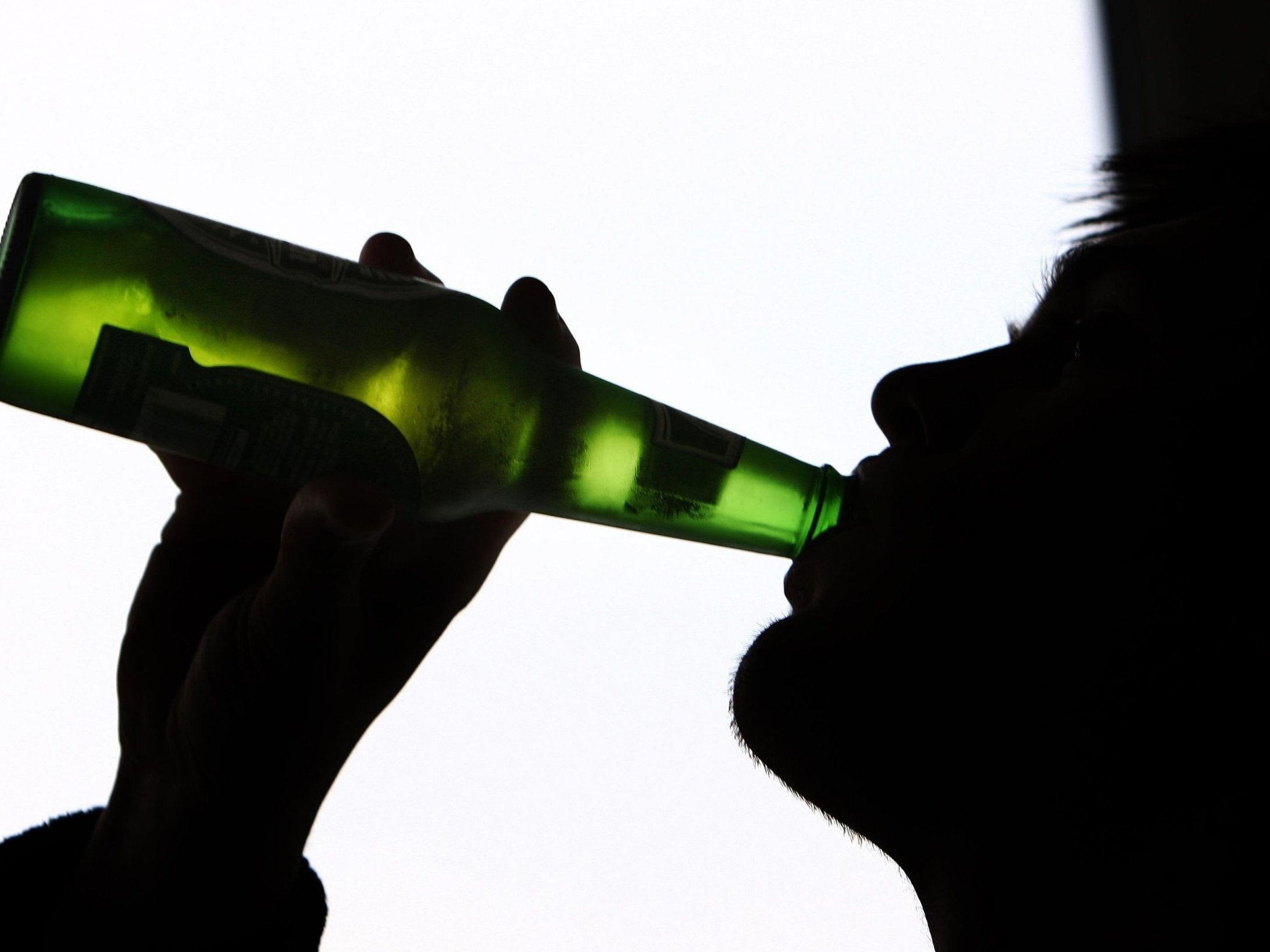UK alcohol deaths approaching levels last seen in 2008 recession, ONS data shows
Alcohol-related death rates among women at highest level since 2001

Deaths due to alcohol are approaching levels last seen during the great recession and the number of women losing their lives to alcohol has hit a record high, Office of National Statistics (ONS) figures show.
In 2017 there were 7,697 deaths due to alcohol in the UK, a rate of 12.2 people for every 100,000 and the highest since 2008 when alcohol death rates reached 12.7 per 100,000.
Among women, alcohol-specific deaths are now higher than in 2008, or any point since 2001, although death rates among men are still double the number among females.
The figures were released on Tuesday alongside the NHS Digital Health Survey for England report which also revealed the number of women who are morbidly obese – a BMI of 40 or more – is at its highest on record.
Overall, 64 per cent of adults were overweight or obese in 2017, a rise from 61 per cent the previous year, but that includes 5 per cent of women who are morbidly obese – and 2 per cent of men.
The report also showed that 17 per cent of children were obese and revealed that 9 out of 10 adults have at least one harmful health habit – including smoking, failing to eat enough fruit and veg and drinking too much.
In England alcohol related deaths peaked in 2008 and were relatively stable for a number of years but have crept up since 2014.
This mirrors a period of sustained cuts to public health funding since it became the responsibility of local authorities in April 2013, with around £100m a year being cut from “lifeline services”.
Despite a year-on-year growth in alcohol addiction rates and harms, a recent analysis shows the number of people receiving treatment are at the lowest level for a decade.
The ONS data also reveals the change in alcohol’s harm in different age groups, with the “baby boomer” generation most at risk of alcohol harms.
In 2001 alcohol deaths peaked among the 50 to 54 age group, but in 2017 deaths peaked among the 60 to 64-year-old age group – and are almost 20 per cent higher than a decade and a half ago.
Karen Tyrell, executive director of external affairs at Addaction, a mental health, drug and alcohol charity, said more needed to be done to target problem drinking in older people and that this is possible with support.
“We know alcohol is an issue for over 50s and we need to do a lot more to reach this group in a way that works for them,” she said.
“For older drinkers, alcohol often creeps up and gradually plays a more central role in day-to-day life.
“The people we work with frequently talk about alcohol as a way to deal with loneliness, isolation, and the sense of loss that sometimes comes with retirement and move into a new phase of life.”
Subscribe to Independent Premium to bookmark this article
Want to bookmark your favourite articles and stories to read or reference later? Start your Independent Premium subscription today.

Join our commenting forum
Join thought-provoking conversations, follow other Independent readers and see their replies